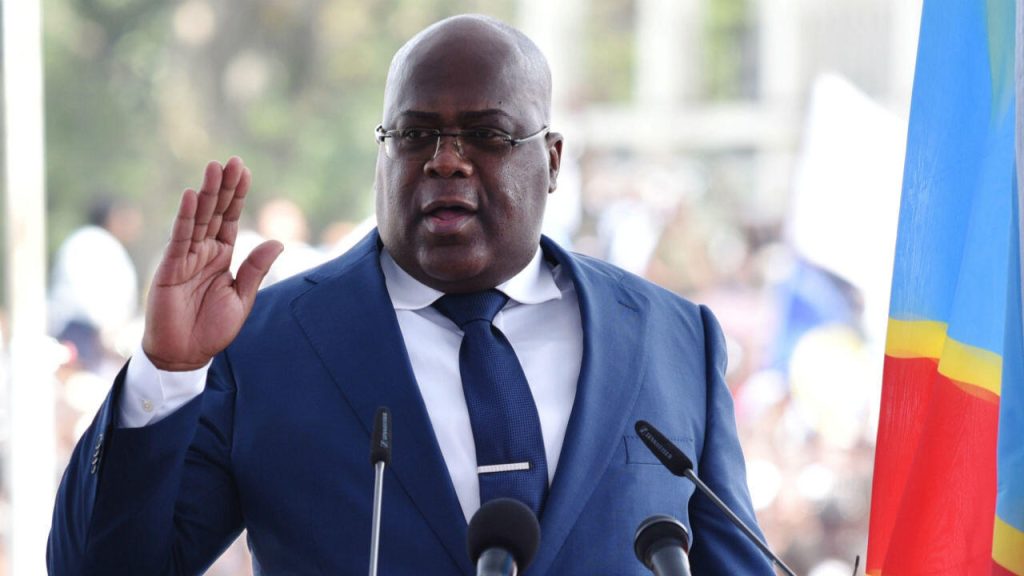Jean-Michel Sama Lukonde, the Prime Minister of the Democratic Republic of the Congo (DRC), has resigned after three years in office.
Lukonde, 46, submitted his official resignation to President Félix Tshisekedi on Tuesday, according to the DRC Presidency.
His resignation follows the validation of his mandate to serve as National Deputy for the Kasenga Constituency.
“He had been at the head of the government since February 15, 2021, at the end of the national consultations that the Head of State had initiated in November 2020,” said the president of the DRC.
Following the breakdown of the ex-President Joseph Kabila-Tshisekedi alliance, Lukonde was appointed head of government.
His resignation came just over a week after the DRC Constitutional Court declared the incompatibility of government and legislative functions, ordering ministers, provincial governors, and members of political cabinets who are also elected in legislative elections to resign unless they relinquish their electoral mandates.
The DRC presidency did not comment on whether the move was influenced by the February 8 Constitutional Court decision.
The Prime Minister and the President share control of the executive arm of government under the DRC Constitution, which was last revised in 2011.
According to Article 78 of the DRC Constitution, the President of the Republic must confer with the legislative majority before appointing the Prime Minister.
The Prime Minister’s responsibilities include advising the president on executive tasks, guaranteeing the implementation of legislation, and exercising regulatory powers.
Lukonde’s retirement comes as the Congolese army is battling the M23 rebels, who have continued to wreak havoc in the Eastern DRC despite pleas for a cease-fire.
DRC-Rwanda tensions
Rwanda’s role in the ongoing war has also been highlighted, with the US and the EU urging for a de-escalation.
On February 18, Rwanda urged the demobilisation and repatriation of the DRC-backed Democratic Forces for the Liberation of Rwanda (FDLR) rebel group in order to de-escalate a smouldering crisis with Kinshasa.
Kigali’s demand came after the US urged Rwanda to evacuate its troops from the DRC and remove its surface-to-air missile systems, citing concerns about civilian safety and commercial flight operations in the eastern DRC.
President Paul Kagame refused to back down, emphasising that DRC support for the FDLR “is a matter of state policy, not the choice of individual actors.”
“Ending Congolese state support for the FDLR, and ensuring their demobilisation and repatriation to Rwanda, is a non-negotiable requirement to protect Rwanda’s territorial integrity and guarantee the preservation of our hard-won national unity for future generations,” he said, asserting that Rwanda reserves the right to take any legitimate measures to defend itself as long as the threat exists.
In response to rising tensions with President Felix Tshisekedi’s dictatorship, Kagame has been reinforcing his military position on the DRC border.
He accuses the DRC of working with the FDLR to remove M23 insurgents and Congolese Tutsi civilians to neighbouring countries, worsening regional instability.

